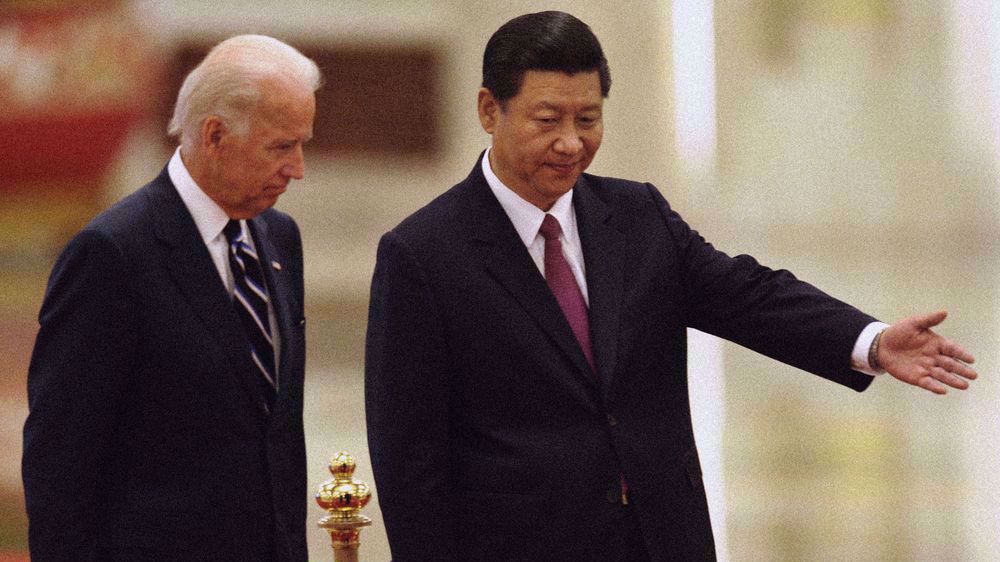Biden has ‘little leeway’ in dealings with China: Analyst
US President Joe Biden is projecting a tougher policy on China than many anticipated, pledging to tackle the challenges Beijing poses to America's “prosperity, security and democratic values.” However, experts say the new administration has “little leeway” in dealings with China, which is expected to overtake the United States to become the world's largest economy in a few years.
US relations with China became increasingly fraught during the presidency of Donald Trump, who chose open confrontation with Beijing, waged a damaging trade war and deepened America’s ties with self-ruled Taiwan. So far, Biden appears to be continuing the same approach.
“The new Biden administration is stuck between a rock and a hard place vis-à-vis relations with China,” Dennis Etler, political analyst and professor of anthropology at Cabrillo College in Aptos, California, said in an interview with Press TV.
“Trump's hardline policy towards Beijing was counterproductive and didn't produce the promised results. The trade war backfired and the inept response of the Trump administration to the challenges of the COVID-19 pandemic, coupled with its effective containment by Beijing, has put China in a much stronger position than its rival,” he noted.
“While the US economy continues to flounder, China's has returned to normal and the country is back on an upward trajectory. The EU, still enmeshed in the pandemic and the resulting economic downturn, sees a recovering China as a far more attractive market for its goods and investment than the struggling US,” he added.
Beijing has blamed the US for the worsening bilateral relations and has called on the Biden administration to correct the past mistakes and work with China to promote “a healthy and stable development of China-US relations by upholding the spirit of non-conflict, non-confrontation, mutual respect and win-win cooperation.”
There is bipartisan agreement in Washington that China is now the number one strategic adversary of the United States, so there is almost no chance Biden will turn back the clock and restore the old policy of engagement. The White House has signaled it wants to see compromise from Beijing first, but China has its own policy priorities, both at home and abroad, and will not change them because Biden says so.
“Biden and his foreign policy and national security teams are, however, caught in a time warp and still see themselves as leading a coalition of the willing in their fight to maintain US global hegemony, the main threat now being identified as China,” Professor Etler said.
“In many respects, Biden has inherited Trump's hardline China policy, particularly when it comes to military confrontations. Now that the Democrats have control of all the levers of power in Washington they have to show that they are tough on China in order to defuse any criticism from their right flank,” he pointed out.
Biden said in an interview with CBS, the excerpt of which was aired on Sunday, that he would not be confronting China the way Trump did. “We're going to focus on international rules of the road."
Biden said he anticipated the US rivalry with China would take the form of “extreme competition” rather than conflict.
In a move that drew an angry response from Beijing on Thursday, the new US administration sent the guided missile destroyer USS John S. McCain through the strategically-sensitive Taiwan Strait, which separates self-ruled Taiwan from mainland China. It was the first such voyage since Biden took office last month.
Beijing condemned the move, saying the Biden administration was using an old trick of “mixed manipulation” of the situation to deliberately create tensions in the region.
American warships periodically carry out such voyages through the strait, often drawing angry responses from China, which has sovereignty over self-ruled Taiwan. Under the “One China” policy, almost all world countries, including the US, recognize that sovereignty.
Etler said, “One way of demonstrating opposition to China is to engage in a bout of gunboat diplomacy by showing the flag in the Taiwan Strait and the South China Sea.”
“At present, Biden has little leeway in his dealings with China. In the long-term, however, it's in the economic interests of the US to seek an accommodation with China and expend its energy in getting its own house in order before it goes off on some ill-fated and doomed foreign adventures,” he concluded.
‘Bloodbath in newsroom’: Bezos-owned Washington Post launches sweeping layoffs
Iran, US to hold nuclear talks in Muscat on Friday: FM
UN experts decry Israeli bill allowing execution of Palestinians
Epstein–Barak recording exposes multimillion-dollar fees paid to Tony Blair
UK Palestine Action activists acquitted of burglary in Elbit factory raid
Oman to broker fresh round of Iran-US talks on February 6: Reports
VIDEO | Iran unveils space technology milestones
Israel to shut water, electricity at UNRWA facilities in occupied territories












 This makes it easy to access the Press TV website
This makes it easy to access the Press TV website